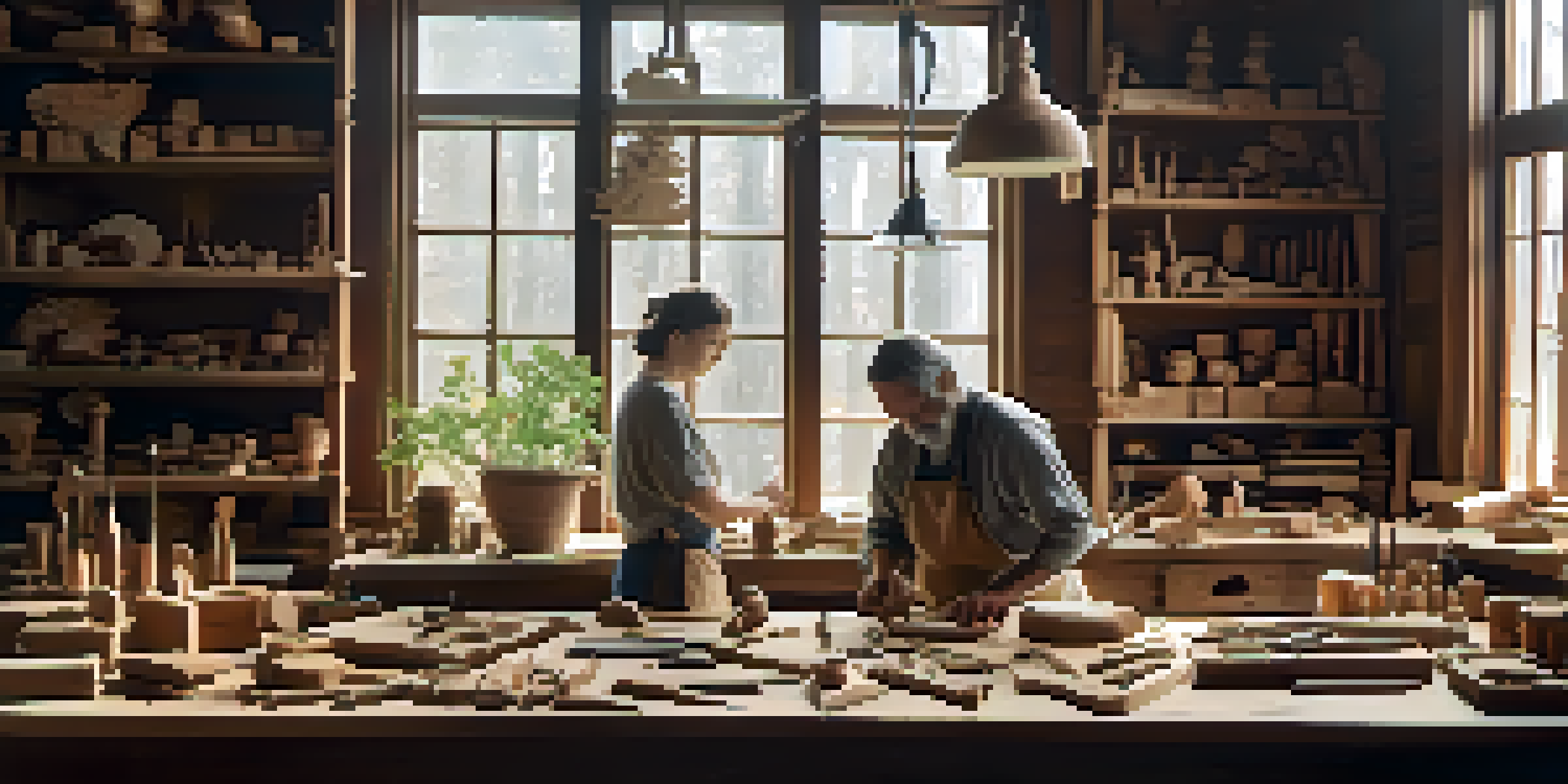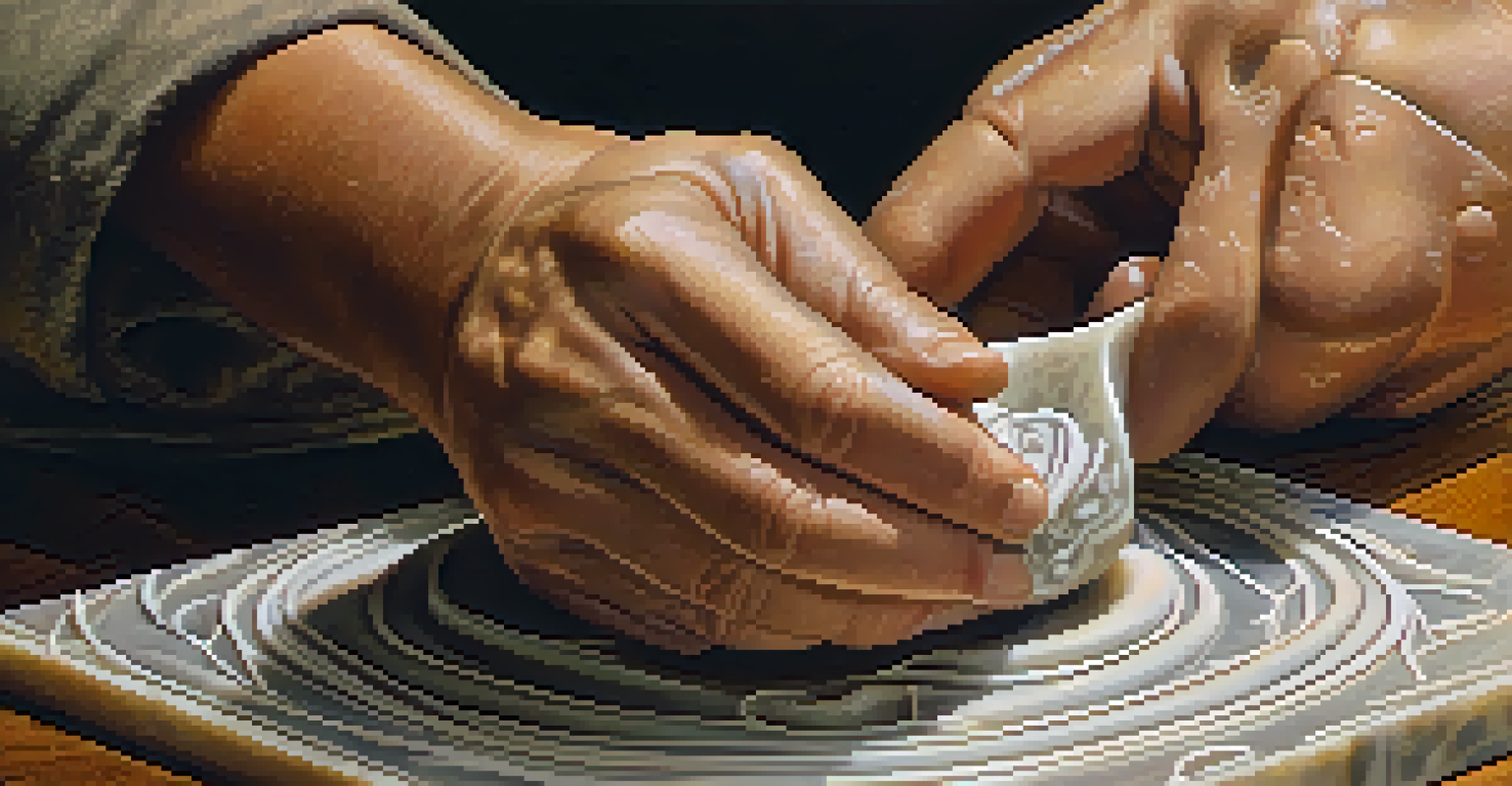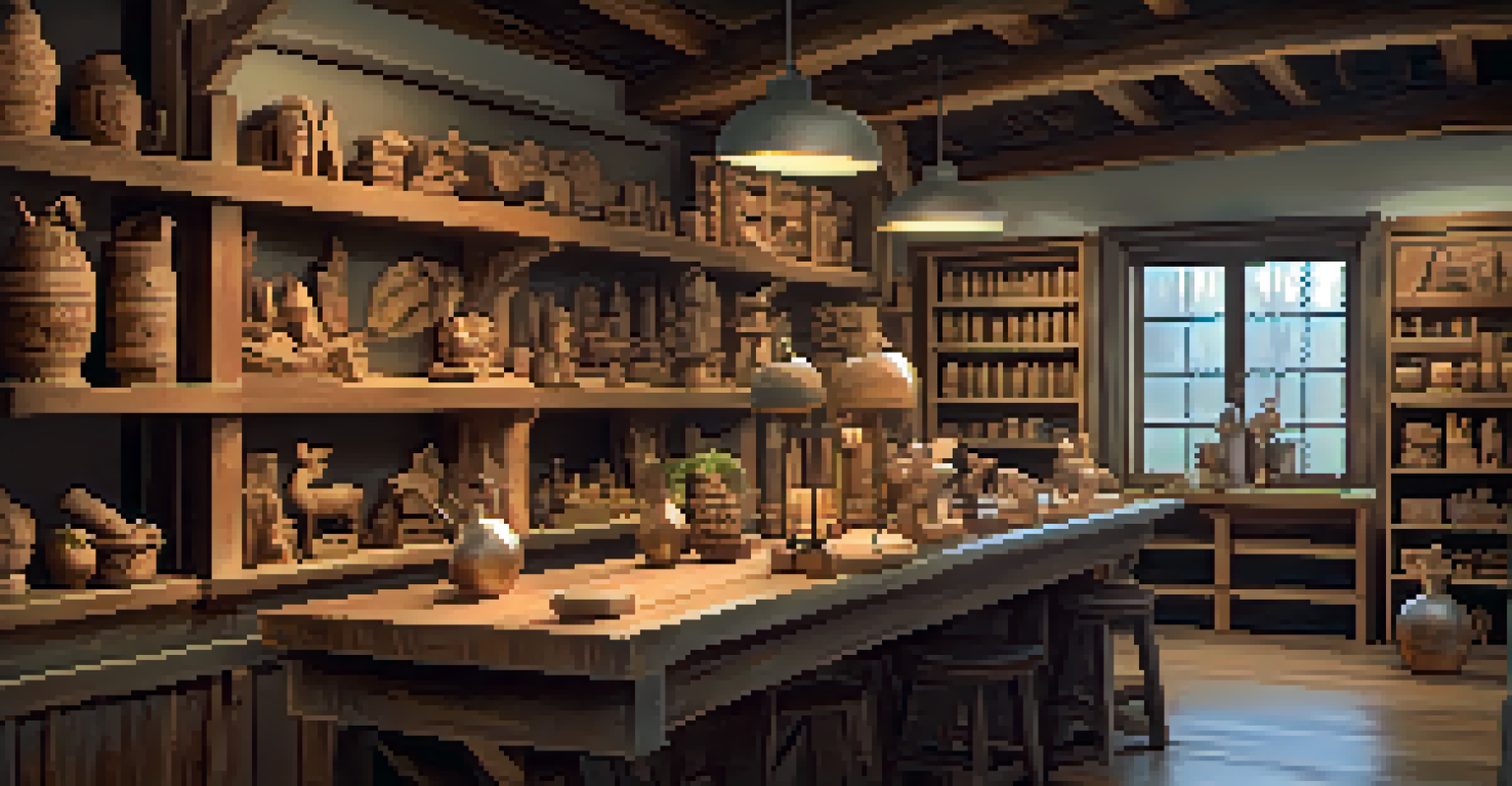Carving Workshops: A Hands-On Approach to Learning

Introduction to Carving Workshops and Their Popularity
Carving workshops have surged in popularity as more people seek creative outlets. These hands-on experiences allow individuals to express themselves through art while learning valuable skills. From wood to soapstone, these workshops cater to various interests and levels, attracting both novices and seasoned artisans alike.
The process of making is as important as the end result.
Why the sudden interest? Perhaps it's the allure of creating something tangible with your own hands in a fast-paced, digital world. Participants often find that carving not only hones their artistic abilities but also serves as a meditative practice, promoting mindfulness and relaxation.
With a variety of workshops available, there's something for everyone. Whether you’re looking to carve a unique gift or simply want to explore a new hobby, these sessions provide the perfect introduction to the art of carving.
What to Expect in a Carving Workshop
When you arrive at a carving workshop, you can expect a warm welcome and a friendly atmosphere. Instructors are typically passionate about their craft and eager to share their knowledge. They guide participants through the basics, ensuring everyone feels comfortable and engaged from the start.

Workshops often begin with an introduction to the tools and materials you'll be using. For instance, you might learn about different types of knives, chisels, and various wood types. This foundational knowledge sets the stage for a successful carving experience, allowing you to choose the right tools for your project.
Carving Workshops Foster Creativity
These workshops offer hands-on experiences that allow individuals to express themselves artistically while learning valuable skills.
As the session progresses, you'll dive into hands-on practice. Instructors provide demonstrations, and participants receive personalized feedback, making the learning process interactive and enjoyable.
Benefits of Hands-On Learning in Carving
Hands-on learning is at the heart of carving workshops, and it's where the magic happens. Engaging physically with materials not only enhances your skills but also helps solidify your understanding of techniques. The tactile experience of shaping wood or stone creates a deeper connection to your work and fosters creativity.
Art is not freedom from discipline, but disciplined freedom.
Moreover, working with your hands can be incredibly therapeutic. Many participants report feeling a sense of accomplishment and relaxation as they see their creations take shape. This therapeutic aspect of carving can lead to increased emotional well-being and stress relief.
Lastly, the camaraderie built among participants during these workshops can be a rewarding experience. Sharing tips, stories, and successes with fellow enthusiasts creates a supportive community that encourages growth and creativity.
Choosing the Right Carving Workshop for You
With so many workshops available, it’s essential to choose one that aligns with your interests and skill level. Start by considering what type of carving you’re most excited about—wood, stone, or perhaps even soap? Each medium has its unique charm and challenges.
Next, look at the experience level of the workshop. Some cater to beginners, while others are designed for more advanced carvers. Don’t hesitate to reach out to instructors to ask about their curriculum and whether it fits your needs.
Benefits of Hands-On Learning
Engaging physically with materials not only enhances skills but also promotes emotional well-being and community connection.
Lastly, consider the workshop's environment and duration. Some may offer weekend-long retreats, while others might be more casual evening classes. Find one that suits your schedule and learning style for the best experience.
Tools and Materials You’ll Use in Workshops
One of the most exciting aspects of carving workshops is getting hands-on with tools and materials. Depending on the workshop, you may work with a range of tools, including knives, chisels, and gouges. Understanding how to handle these tools correctly is crucial for both safety and achieving your desired results.
The choice of material also plays a significant role in your carving experience. Different types of wood, like basswood or butternut, offer varying textures and workability. Similarly, if you're working with stone, you might encounter softer materials like soapstone that allow for easier carving.
Instructors typically provide all necessary tools and materials for the workshop. However, it's always a good idea to ask if you should bring anything specific or if there are any recommended tools for future projects.
Tips for Getting the Most Out of Your Carving Experience
To truly benefit from your carving workshop, come with an open mind and a willingness to learn. Embrace mistakes as part of the learning process; every misstep is an opportunity for growth. Remember, even skilled artisans were once beginners, and practice is key to mastery.
Additionally, don’t hesitate to ask questions. Instructors appreciate eager learners and are often more than happy to provide insights and tips. Engaging with your instructor can deepen your understanding and enhance your experience.
Choosing the Right Workshop Matters
Selecting a workshop that aligns with your interests and skill level is crucial for a fulfilling carving experience.
Lastly, take the time to connect with fellow participants. Sharing experiences and tips can enrich your learning journey and may even lead to future carving collaborations!
Conclusion: Embrace the Art of Carving Workshops
Carving workshops offer a unique blend of creativity, learning, and community. They provide an excellent opportunity to engage with your artistic side while honing valuable skills. Whether you're looking to create something beautiful or simply seeking a new hobby, these workshops are a fantastic choice.
As you embark on your carving journey, remember that the process is just as important as the final piece. Enjoy the tactile experience of working with your hands and allow yourself to be present in the moment. This mindful approach can lead to unexpected joy and fulfillment.

So, gather your tools, find a workshop that resonates with you, and dive into the world of carving. You might just uncover a passion that stays with you for years to come.